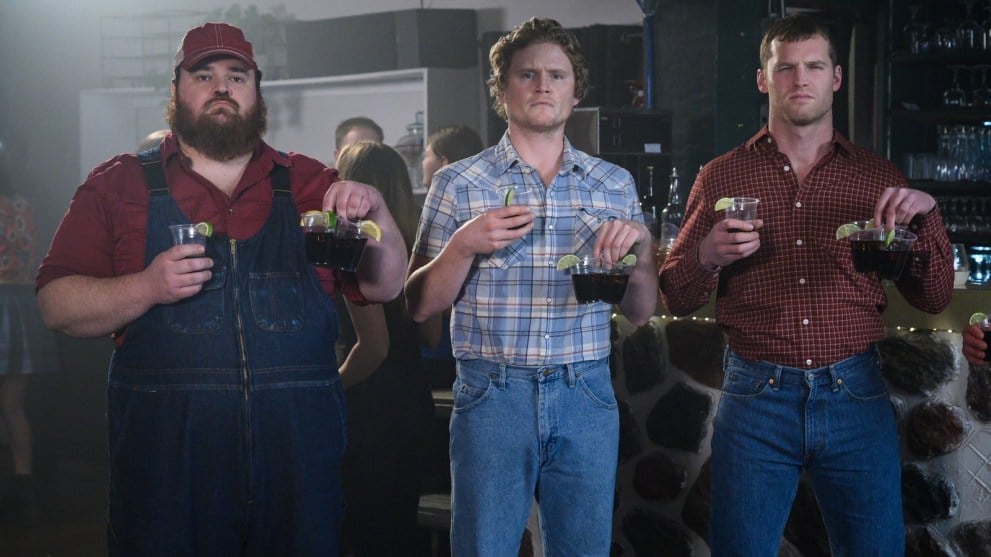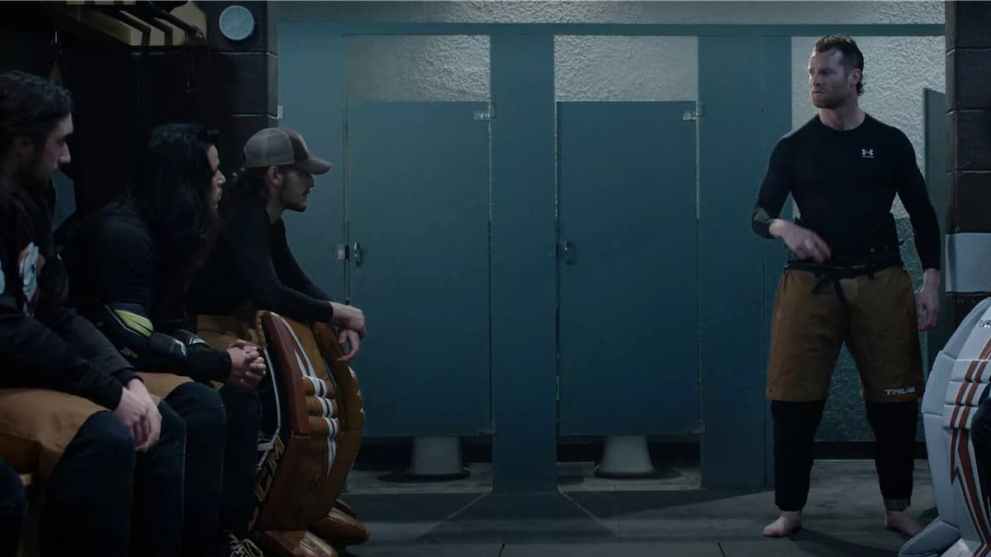Letterkenny Season 11 has come and passed, and while there were some good skits here and there, for the most part, a large portion of the latest iteration felt a bit directionless and lacking when it came to its content. Couple this with the fact that Shoresy absolutely blew expectations out of the water with its first season, especially with its “never losing again” storyline, and the idea that the hicks need to take a back seat to the hockey players feels like a serious possibility.
Now, it should be mentioned that Letterkenny’s first few seasons are fantastic, as just about every one is funny, energetic, brilliantly written, and enforce the importance of family, friends, and community. There also used to be an arc every season that while not always being prevalent, was still there between the normal runtime of ten or so episodes.
Whether it be feuding with one of the many categorizations of Letterkenny’s Denizens, proving that Wayne is the hardest dude in the town, the bevy of heartbreaking relationships that occur, or even hockey players Riley and Jonesy finding their purpose. These were all at least somewhat intriguing.

Comparatively, this season, the most audiences got was a short arc with Jivin’ Pete, which wound up going literally nowhere, or a pointless debate about potato chips that wasn’t really that funny. The last time fans even saw something resembling an arc was several seasons ago after we find out that Dierks is cheating on Katie.
From there, the season ends with basically the entire Canadian Province going after Dierks and company, and it’s rather fulfilling, much more so than the failed redemption of a degen that had no standing before this season. The problem with Letterkenny is that it’s all been done – time and time again.
The writing borders on formulaic, as the bits are rather dry at this point, given their repeated nature of them, and the gags seem overdone. Not to mention, the last few seasons have just been retreads of the same plots of the story.
Dan has some more risqué sexual experiences, the McMurray clan recounts their swinging history, the Mennonite Dyck family misuses common words that double as sexual innuendos, etc. While fans do obviously still care and enjoy the ebb and flow of this Canadian Province, how long can that effectively last?
The hardest part about all of this is that it came as a follow up to Shoresy, a spinoff show about everyone’s favorite notoriously rude hockey player. Throughout the series, this character would show up in Letterkenny riffing with Riley and Jonesy about bedding their respective moms, albeit featuring an actual ongoing plot.
The only consistent thread with him is that we’d never actually see his face – mostly because it was just creator Jared Keeso, who also played Wayne, trying to avoid having two characters that looked the same. Despite this, a spinoff for Shoresy not only did well but also thrived.
The premise is pretty simple, as a senior AAA hockey team hires Shoresy to lead them to victory, a struggling team that was once the pride and joy of the town of Sudbury. At first, the show is kind of surface-level as it seems to only be about hockey, though it’s made apparent pretty quickly that there’s a lot more than meets the eye regarding the story.

Like Letterkenny before it, there is a stigma that comes with these shows at first. Given the subject material of living/working on a farm, you would expect it to be kind of a manly show, and for lack of better words, it is. But Letterkenny is also so much deeper than that, and Shoresy is even moreso.
At first glance, the character of Shoresy is obnoxious, rude, a loner, and a womanizer, which he pretty much is, especially in Letterkenny. However, over the series’ short six-episode run, it’s shown that he’s actually got a lot more layers to him.
One of the biggest themes throughout the first season is Shoresy’s mantra, which comes down to a refusal to lose, something that, by the end of the season, his team has adopted. What makes this even more fulfilling is that the audience learns that Shoresy’s refusal to lose comes from being a part of a very close foster family in which each member looks out in one specific way or another for his/her siblings.
For example, he would always play football with his athletic brother but could never beat him, instilling a drive and need to persevere and win. Looking deeper into that theme, the need to persevere amidst the hardship of growing up in a foster home reaffirms this mindset, as he finds happiness from his unique situation and “wins” regardless.
Building off of that, watching Shoresy goes from lone wolf to team player, causing his team (all of whom are kind of loners themselves) to do the same, is super satisfying. Not only do we get to see the team become a family, but the viewers also come to appreciate Shoresy’s character development from the immature “I banged your mom” guy in Letterkenny to the leader that will “never lose again.”

When it comes down to it, Letterkenny will always be an important, amazing show. Not only has it provided so many hilarious skits and catchphrases, but it’s also served as a trailblazer for many comedy shows, proving that it’s possible to go from Youtube to mainstream television.
Unfortunately, Letterkenny has had its time in the sun, and it’s time to make way for Shoresy, as the show just feels fresher and has a more concise direction. Here is to hoping that creator Jared Keeso is able to see this and can come up with a proper ending for the former while also building upon the ideas he’s got for the latter.
